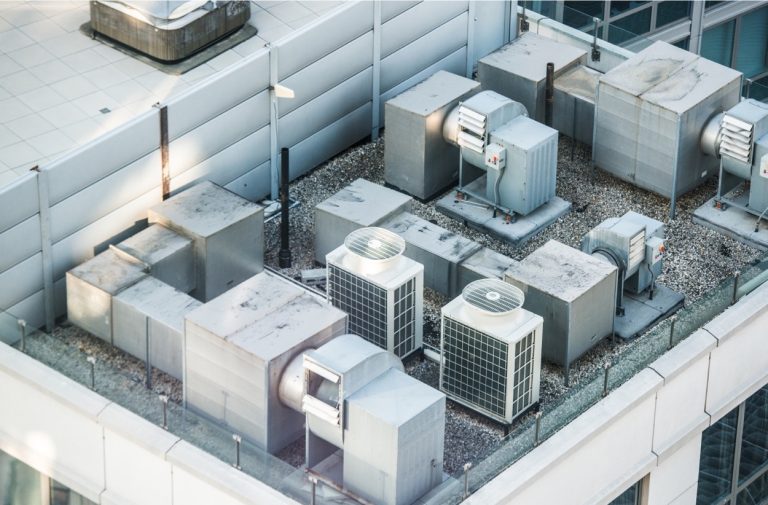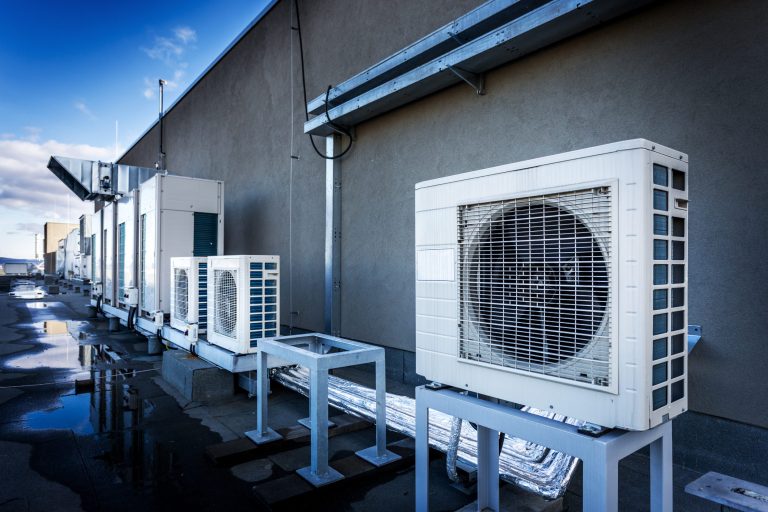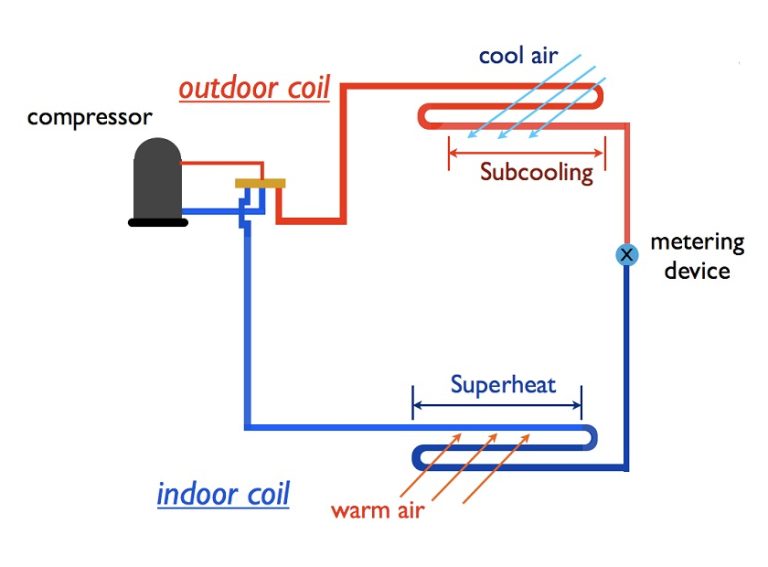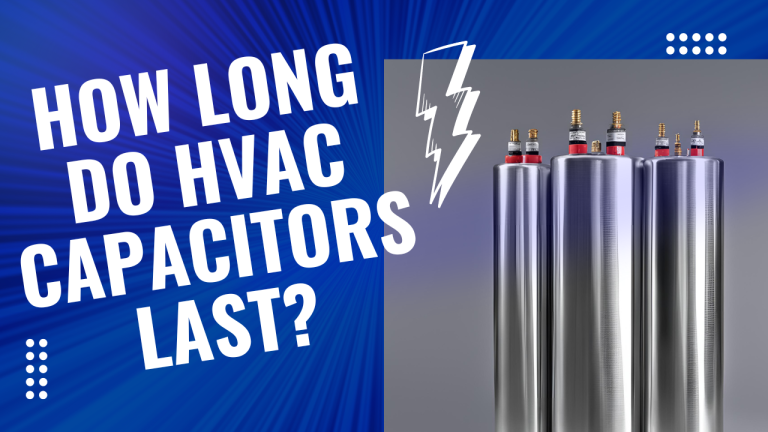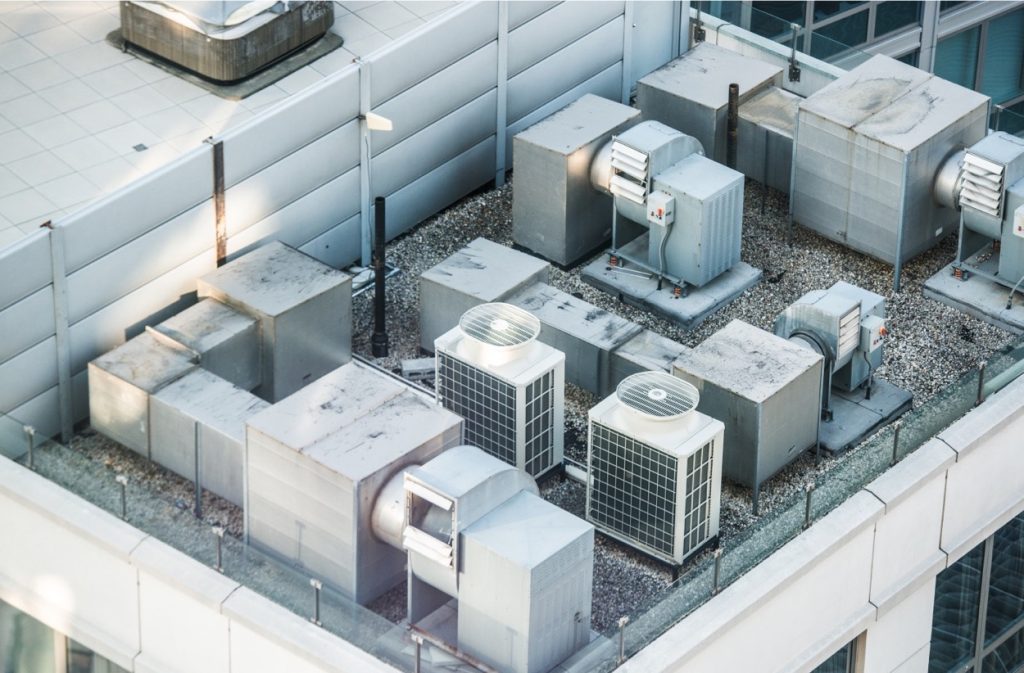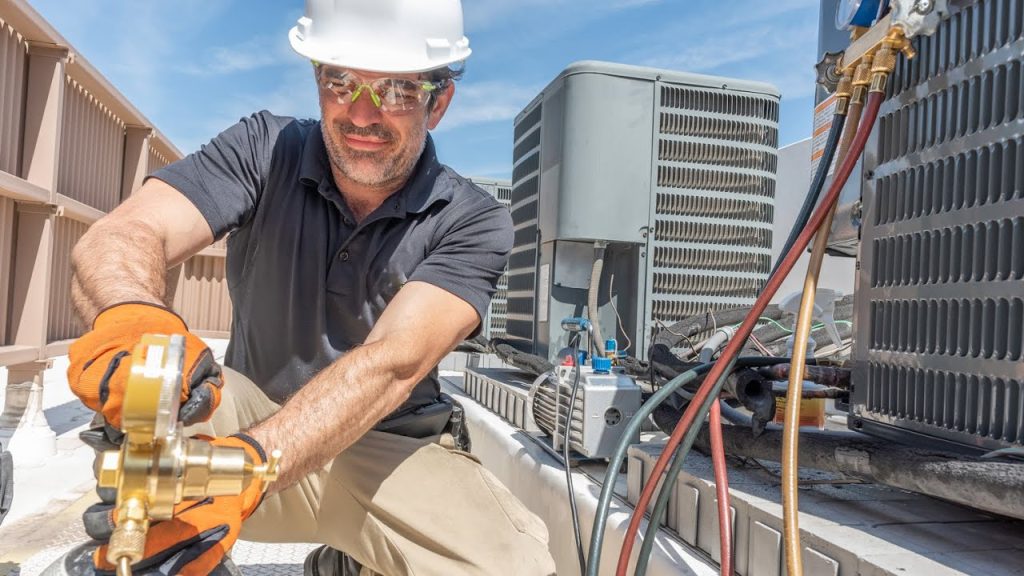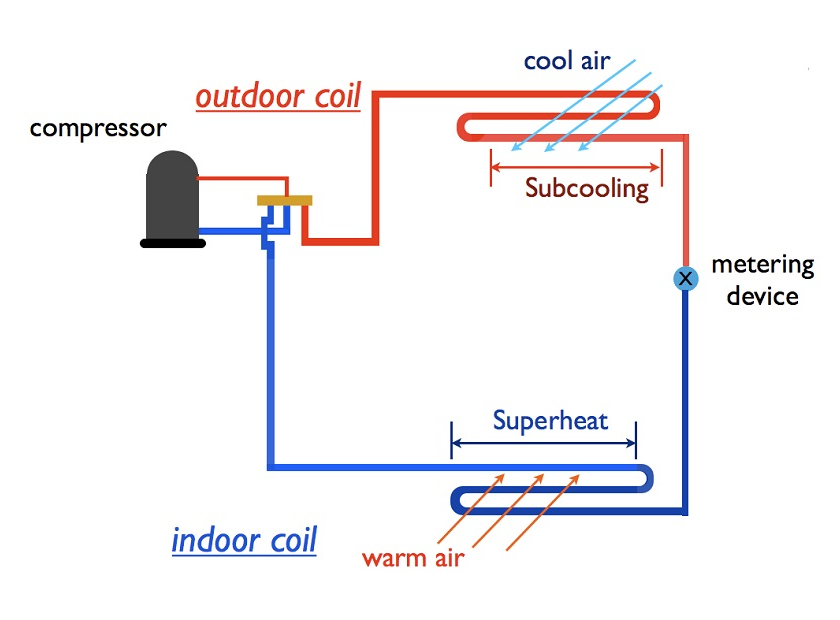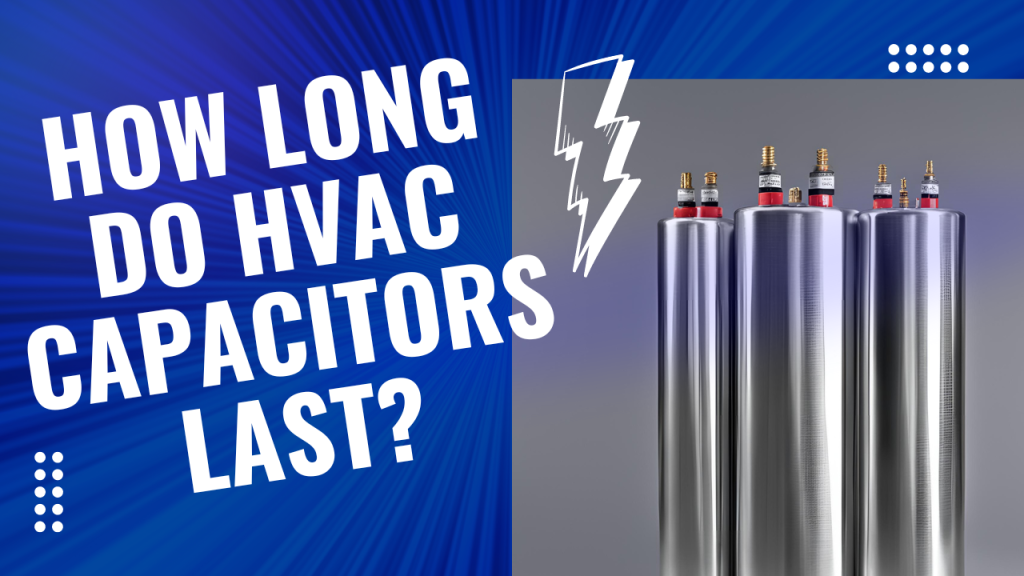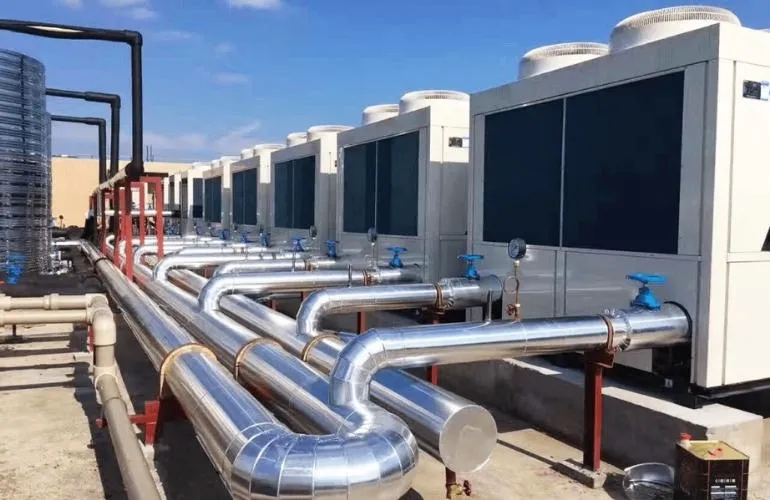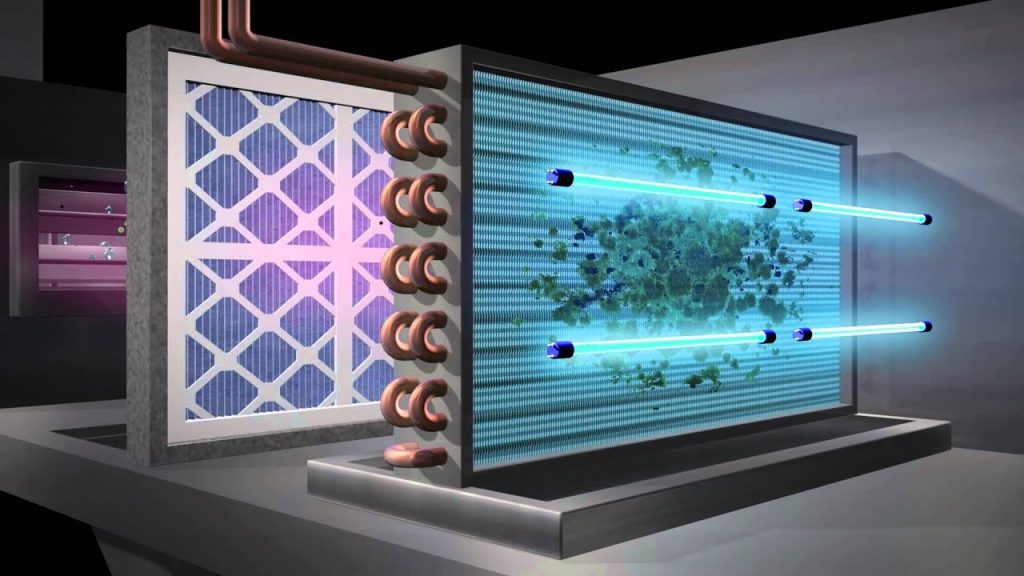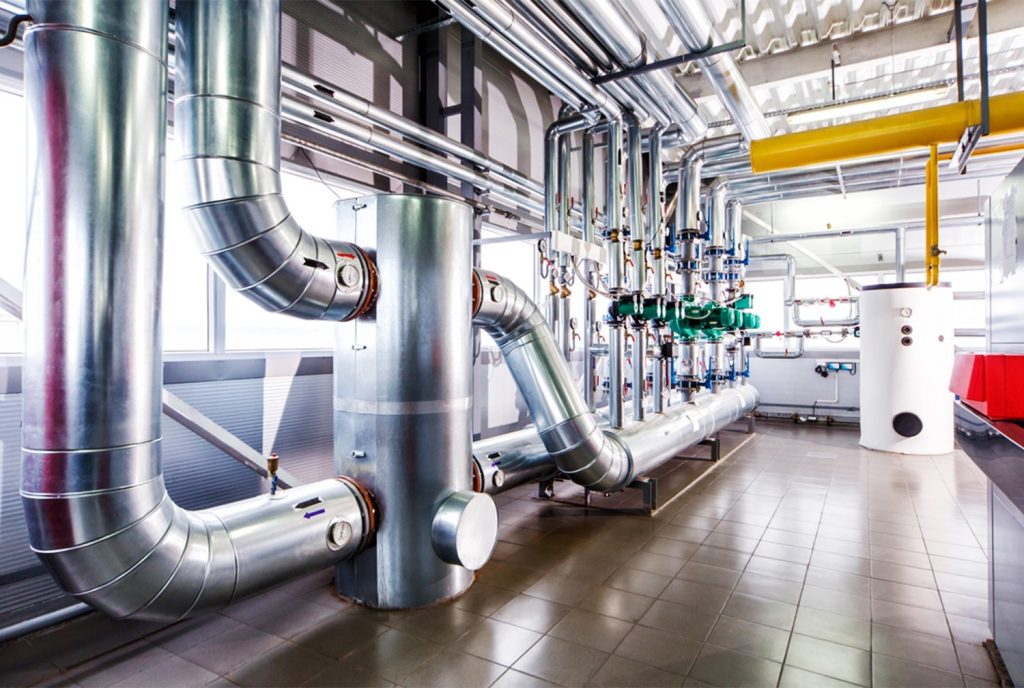Air conditioning plays a vital role in ensuring comfort in homes and offices, particularly during the sweltering summer months. The compressor is a key element, compressing the refrigerant gas, which is crucial for cooling the air. Like any other mechanical part, AC compressors can experience issues. It’s important to address these problems swiftly to avoid further complications. In this post, we’ll explore how to identify and troubleshoot compressor issues effectively.
Signs Your AC Compressor Needs Attention
The compressor is indispensable to your AC system, as it compresses refrigerant and circulates it through the coils for cooling. A failing compressor can cause a variety of problems, from reduced efficiency and higher energy costs to complete system failure. Here are some common indicators that your compressor may be malfunctioning
Unusual Sounds
Hearing odd noises like banging, clanging, or grinding? These could be warning signs of a failing compressor
Warm Air Output
If your AC is blowing warm instead of cold air, it could stem from a faulty compressor. This component is responsible for compressing refrigerant, cooling the air before it circulates in your space.
Increased Energy Bills
A noticeable spike in your energy costs, without any changes in AC usage, might indicate a struggling compressor. As it attempts to function correctly, it may consume more energy, leading to higher bills.
Frequent On/Off Cycling
Is your AC turning on and off more often than usual? This could signify compressor issues, as it struggles to maintain the set temperature, causing the system to cycle more frequently.
Visible Leaks
Spot any leaks around your AC unit? This might suggest a compressor problem. The compressor relies on refrigerant to cool air, and a leak can reduce refrigerant levels, affecting performance.
Tripped Circuit Breakers
If your compressor is drawing excessive power, it may trip the circuit breaker, shutting down the system. This often indicates an electrical issue with the compressor and should be assessed by a professional. Ignoring this can lead to further damage or risky situations.
If you observe any of these warning signs, it’s crucial to have your AC unit inspected by a professional technician promptly. Delaying repairs may result in more extensive damage and costly fixes later on. A qualified technician can pinpoint the issue and advise whether the compressor needs repair or replacement.

8 Steps to Troubleshoot A Defective Compressor HVAC
Some of these steps require special tools and knowledge, if at any point you feel unsafe or don’t know what to do it is best to stop and contact a licensed HVAC technician. Below are the steps to Troubleshoot a defective compressor HVAC:
Check the Power Supply
The initial step in diagnosing your AC compressor issues is to verify the power supply. Confirm that the AC unit is properly connected to a power source and check that it’s functioning correctly. If the power source is fine, but the unit still lacks power, you might be dealing with a blown fuse or a tripped breaker. If that’s the case, you’ll need to either replace the fuse or reset the breaker. The fuse, located in the air handler, typically ranges between 3 to 5 amps. It’s usually transparent, so if you notice any burn marks inside, it’s time for a replacement. When it comes to breakers, make sure to turn them off completely before switching them back on. If the breaker trips again immediately, this could indicate a more serious problem, such as a faulty compressor or other electrical issues.
Check the Thermostat
The thermostat plays a crucial role in managing the temperature in your home or office. If your AC compressor isn’t functioning properly, a malfunctioning thermostat might be the culprit. To address this, check that the thermostat is set to the appropriate temperature and confirm it’s working as it should. For those with a programmable thermostat, ensure it’s both set and programmed correctly
For optimal performance, adjust the fan mode to ‘auto,’ set the temperature to ‘cool,’ and make sure it’s below the current room temperature. Programmable thermostats adjust the temperature according to a schedule, so don’t be surprised if the temperature setting in your home varies throughout the day without warning.
Ensuring your thermostat is functioning correctly can save you from unnecessary discomfort and potential repair costs. Always refer to your thermostat’s manual for specific instructions tailored to your device, and consider consulting a professional if you encounter persistent issues.
Check the Air Filter
The air filter in your air conditioning unit plays a crucial role in clearing dust and debris from the air. When the filter gets clogged, it forces the AC compressor to overwork, which can lead to reduced efficiency or even a breakdown. It’s important to check the air filter regularly and replace it if needed. If you’re unsure about how to swap out the filter, refer to the owner’s manual or reach out to a professional for assistance
We suggest opting for a [MERV] 8 or higher filter for your HVAC system and changing it monthly. If your household includes several people or pets, you might need to replace it every 2-3 weeks. Keeping your home clean can help extend the filter’s life. A handy tip: inspect the filter each time you change it. A very dirty filter means you should replace it more often, while a cleaner one might last a bit longer.
Bonus
For an extra maintenance tip, pour a cup of diluted white vinegar down your AC’s drain line whenever you change the filter
Check the Refrigerant Levels
The refrigerant in your air conditioner is crucial for cooling the air. Low refrigerant levels can force the AC compressor to overwork, leading to reduced performance or even failure. To check refrigerant levels, a professional should perform a pressure test. If levels are low, the technician will need to replenish the refrigerant.
A telltale sign that your system might be low on refrigerant is if it freezes. Although freezing is commonly linked to low refrigerant, it isn’t the only cause. Conversely, your system may lack sufficient refrigerant even without freezing.
Check the Condenser Unit
The condenser unit plays a crucial role in the air conditioning system by dissipating the heat generated by the refrigerant. A dirty or blocked condenser unit can force the AC compressor to work overtime, leading to decreased performance or even potential failure.
To inspect the condenser unit, first, ensure you turn off the AC unit’s power supply. Then, remove the outer cover carefully. With the cover off, use a garden hose to gently wash away any accumulated dirt or debris from the fins. If you find any bent fins, a fin comb can be handy to straighten them. In certain models, it’s possible to clean the unit without taking off the cover, but this depends on the specific design and situation.
Regular maintenance and cleaning of the condenser unit can significantly improve the efficiency and lifespan of your air conditioning system. Remember, keeping your AC unit in top shape not only enhances its performance but also reduces energy costs over time.
Check the Capacitor
The capacitor in your AC condenser plays a crucial role in getting both the fan motor and the compressor started. When this component malfunctions, it can prevent the AC compressor from starting up altogether. To examine the capacitor, you must first disconnect the power to the AC unit and remove its outer cover. After taking off the cover, you should locate the capacitor and inspect it for any signs of swelling or leakage. If you notice these issues, it’s necessary to replace the capacitor.
To further assess the motor, see if it spins freely by giving it a gentle push with your hand. Sometimes, the fan might start rotating in the wrong direction; you can test the airflow direction
using a piece of paper. Additionally, if you notice oil leaking from the motor, it’s a strong indication that it’s time for a replacement.
Check the Fan Motor
The fan motor in your AC compressor plays a crucial role in circulating air throughout the system. A malfunctioning fan motor can lead to inefficiencies or incorrect functioning of the AC compressor. To inspect the fan motor, first turn off the power supply to the AC unit for safety and then remove the outer cover. After removing the cover, you’ll find the fan motor. Check its operation to ensure it’s functioning properly. If it’s not, a replacement might be necessary.
The fan motor in your AC compressor plays a crucial role in circulating air throughout the system. A malfunctioning fan motor can lead to inefficiencies or incorrect functioning of the AC compressor. To inspect the fan motor, first turn off the power supply to the AC unit for safety and then remove the outer cover. After removing the cover, you’ll find the fan motor. Check its operation to ensure it’s functioning properly. If it’s not, a replacement might be necessary.
Call a Professional
If you’ve followed all the troubleshooting steps mentioned above and your AC compressor is still malfunctioning, it’s time to call in a professional. AC compressors are complex devices, and trying to repair them without the right training can be risky. An experienced technician possesses the skills and knowledge needed to safely identify and resolve any issues with your AC compressor

What kills an AC compressor?
There are multiple reasons why an AC compressor might fail. Let’s take a look at some of the most common causes:
Overheating
When a compressor works excessively or encounters issues with refrigerant flow, it can overheat. This overheating can harm the motor and internal parts,
resulting in failure. If your compressor overheats, a temporary fix is to use a garden hose to cool it down. However, if the problem persists, it’s crucial to contact a professional.
Electrical Problems
Issues like short circuits, voltage spikes, and power surges can severely damage the compressor’s electrical components. To protect your system, consider installing a surge protector on your condenser.
Lack of Maintenance
Regular upkeep of your AC system is critical for smooth operation. Failing to perform tasks like changing air filters, cleaning coils, and checking refrigerant levels can lead to compressor failure
Age
AC compressors, like any mechanical part, have a finite lifespan. Over time, their internal components can wear out or become damaged, leading to failure
Contaminants in the Refrigerant
Elements like moisture, dirt, and debris can accumulate in the refrigerant lines, damaging compressor components. Ensure your technician vacuums the refrigerant lines whenever they are opened
Low Refrigerant Levels
Insufficient refrigerant levels force the compressor to work harder, leading to overheating and eventual failure.
To avoid compressor failure, regular inspections and maintenance by a professional technician are necessary. Tasks like changing air filters, cleaning coils, and checking refrigerant levels can help keep your AC system in top condition and prevent costly repairs. Address any system issues promptly to avoid further damage and expensive repairs.

Is it better to replace the compressor or the whole unit?
The cost of replacing an AC compressor can vary greatly. Factors such as the size and type of the AC unit, the brand and model of the compressor, and local labor costs all play a role. On average, replacement costs range from $1,500 to $2,500, including parts and labor. However, this can fluctuate based on several factors.
For instance, compressor prices differ by brand and model, with some costing a few hundred dollars and others exceeding $1,000. Labor costs also vary, influenced by location, job complexity, and technician experience.
If other parts of the AC system are damaged or need replacement, costs can rise. For example, if compressor failure damages the condenser or evaporator coils, those may need replacement, increasing the overall cost.
To get a precise estimate for replacing your AC compressor, consult with a professional technician. They can evaluate the situation and provide a detailed estimate for parts and labor costs.
How much does it cost to replace an AC compressor?
When you’re faced with the decision of whether to replace just the compressor or the entire air conditioning (AC) unit, there are several crucial factors you need to evaluate. These include the age and current condition of your AC unit, the cost involved in obtaining replacement parts, and the labor expenses. To help guide your decision, consider these points:
Age of the AC Unit
If your AC system is more than a decade old, it might be smarter to invest in a new unit entirely rather than just swapping out the compressor. Older units often have multiple components approaching the end of their service life, which could mean more repairs are on the horizon.
Cost of Replacement Parts
The price for a new compressor can differ based on the size and model of your AC system. Sometimes, the cost of a new compressor is nearly as much as a new AC unit, making a full replacement more economical.
Labor Costs
Replacing a compressor can be a labor-heavy task that demands specific skills and tools. Depending on local labor rates, it might be more financially sensible to go for a new unit rather than repairing the old one.
Warranty Considerations
If your AC system is still covered by a warranty, it might be cheaper to replace just the compressor. However, it’s vital to review your warranty terms to ensure that replacing only the compressor won’t invalidate your warranty.
Energy Efficiency
If you’re considering replacing an older unit, opting for a new AC system instead of just a compressor might be more cost-effective over time. Modern units typically offer better energy efficiency, translating into lower utility bills and a more comfortable living environment.
Ultimately, the choice between replacing just the compressor or the entire AC unit depends on your individual circumstances. Consulting with a professional HVAC technician can provide valuable insights tailored to the age and condition of your AC unit, replacement costs, labor expenses, and your long-term energy efficiency and comfort objectives.

